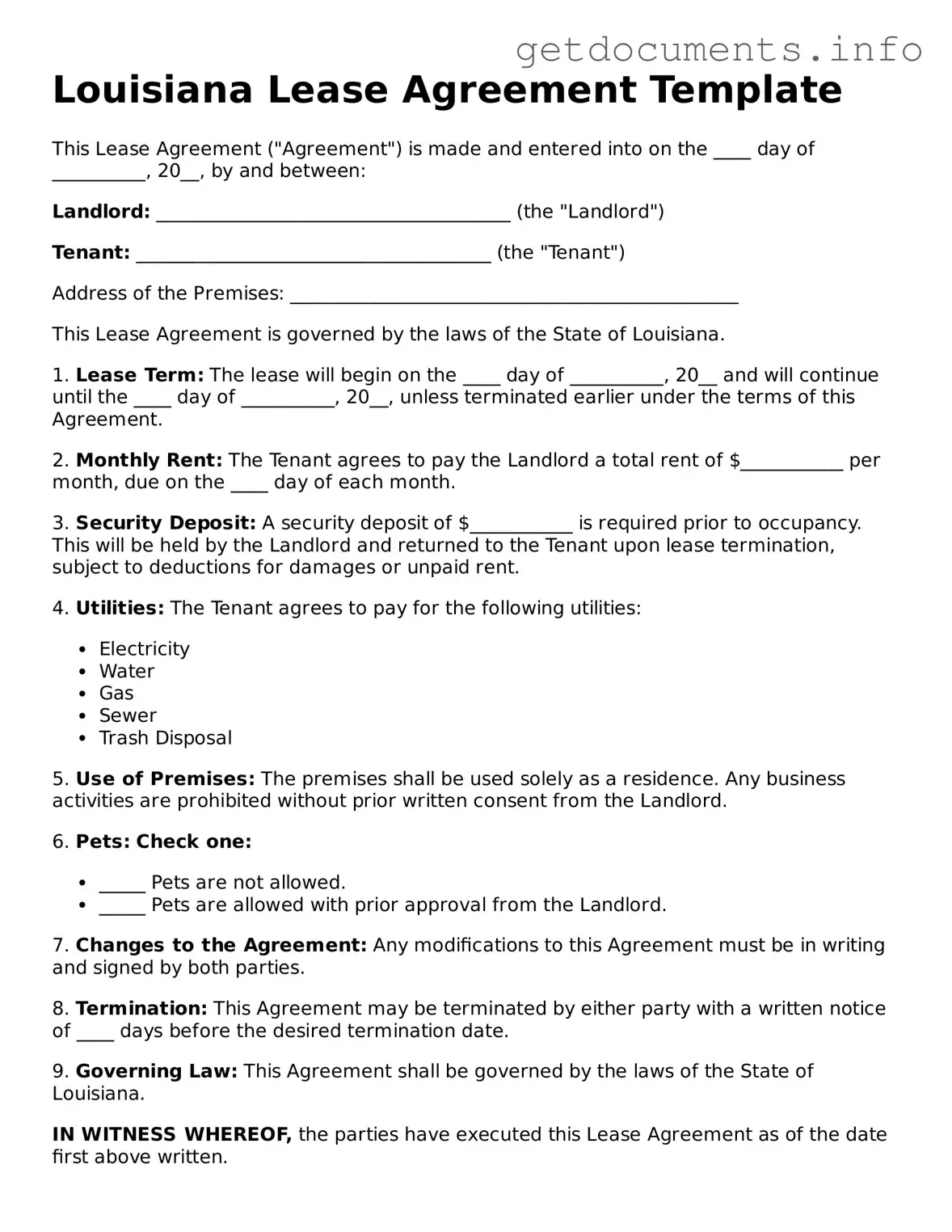Free Lease Agreement Template for Louisiana
The Louisiana Lease Agreement form is a legal document that outlines the terms and conditions between a landlord and a tenant for renting residential or commercial property in Louisiana. This agreement serves to protect the rights and responsibilities of both parties, ensuring clarity and compliance with state laws. To get started on your leasing journey, fill out the form by clicking the button below.
Access Lease Agreement Editor

Free Lease Agreement Template for Louisiana
Access Lease Agreement Editor
Got places to be? Complete the form fast
Fill out Lease Agreement online and avoid printing or scanning.
Access Lease Agreement Editor
or
⇩ PDF File
